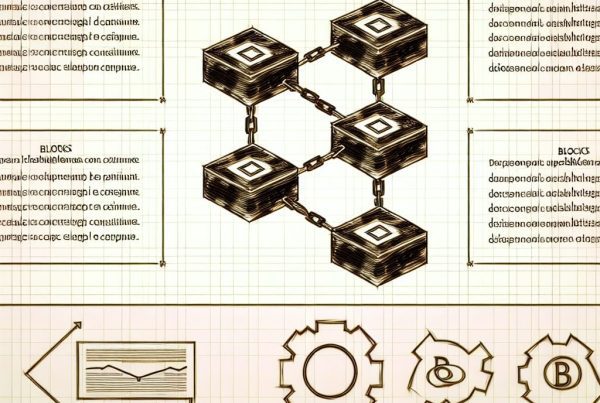What Is a Smart Contract Audit?
In the rapidly evolving world of cryptocurrency, smart contracts have emerged as a revolutionary technology that automates and secures transactions on blockchain networks. However, the complexity and potential vulnerabilities associated with smart contracts necessitate a thorough examination process known as a smart contract audit. This article delves into the intricacies of smart contract audits, their importance, methodologies, and the implications for the cryptocurrency industry.
Understanding Smart Contracts
Smart contracts are self-executing contracts with the terms of the agreement directly written into code. They run on blockchain platforms, such as Ethereum, and automatically enforce and execute contractual agreements when predetermined conditions are met. This technology eliminates the need for intermediaries, reduces transaction costs, and enhances trust among parties involved.
The Importance of Smart Contract Audits
Despite their advantages, smart contracts are not immune to errors or vulnerabilities. A single flaw in the code can lead to significant financial losses, hacking incidents, or unintended consequences. This is where smart contract audits come into play. An audit is a comprehensive review of the smart contract’s code to identify vulnerabilities, ensure compliance with standards, and verify that the contract behaves as intended.
Key Reasons for Conducting Smart Contract Audits
- Security Assurance: Audits help identify vulnerabilities that could be exploited by malicious actors.
- Financial Protection: By ensuring the contract is secure, audits protect users’ funds from potential losses.
- Regulatory Compliance: Audits can help ensure that smart contracts comply with relevant regulations.
- Trust Building: A well-audited smart contract enhances trust among users and investors.
The Smart Contract Audit Process
The audit process typically involves several stages, each designed to ensure a thorough examination of the smart contract’s code. Here’s a breakdown of the typical steps involved:
1. Pre-Audit Preparation
Before the audit begins, the development team should prepare the smart contract by providing documentation, including:
- Contract specifications
- Use cases
- Deployment details
2. Code Review
The core of the audit process is the code review, where auditors analyze the smart contract’s code for:

- Logical errors
- Security vulnerabilities
- Compliance with best practices
3. Testing
Auditors conduct various tests, including:
- Unit tests to verify individual components
- Integration tests to ensure components work together
- Pentest (penetration testing) to simulate attacks
4. Reporting
After the review and testing phases, auditors compile a detailed report outlining:
- Identified vulnerabilities
- Recommendations for improvements
- Overall assessment of the contract’s security
5. Remediation
The development team addresses the issues identified in the audit report, making necessary changes to the smart contract code.
6. Final Review
Once the remediation is complete, a final review is conducted to ensure all issues have been resolved and the contract is secure.
Common Vulnerabilities in Smart Contracts
Smart contracts can be susceptible to various vulnerabilities. Understanding these common issues can help developers and auditors focus their efforts effectively:
- Reentrancy Attacks: Occurs when a contract calls another contract and allows the second contract to call back into the first contract before the first call is finished.
- Integer Overflow/Underflow: Errors that occur when arithmetic operations exceed the maximum or minimum limits of data types.
- Gas Limit and Loops: Contracts that require excessive gas can fail to execute, leading to loss of funds.
- Timestamp Dependence: Relying on block timestamps can lead to manipulation by miners.
Real-World Implications of Smart Contract Audits
The significance of smart contract audits is underscored by several high-profile incidents in the cryptocurrency space. For instance, the infamous DAO hack in 2016 resulted in the loss of $60 million worth of Ether due to vulnerabilities in the smart contract code. This incident highlighted the critical need for rigorous audits before deploying smart contracts.
Another example is the Poly Network hack in 2021, where hackers exploited a vulnerability in the smart contract, leading to a loss of over $600 million. Although the funds were eventually returned, the incident raised awareness about the importance of security audits in protecting user assets.
Choosing a Smart Contract Audit Service
When selecting a smart contract audit service, consider the following factors:
- Reputation: Look for firms with a proven track record in the industry.
- Expertise: Ensure the auditors have experience with the specific blockchain platform and programming languages used.
- Comprehensive Reporting: Choose a service that provides detailed reports and actionable recommendations.
- Post-Audit Support: Some firms offer ongoing support after the audit, which can be beneficial for addressing future issues.
Cost of Smart Contract Audits
The cost of a smart contract audit can vary significantly based on several factors, including:
- The complexity of the smart contract
- The reputation and expertise of the auditing firm
- The depth of the audit (e.g., basic review vs. comprehensive testing)
On average, audits can range from a few thousand to tens of thousands of dollars. While this may seem steep, the potential losses from a security breach can far exceed the cost of an audit.
Future Trends in Smart Contract Audits
As the cryptocurrency industry continues to grow, several trends are emerging in the realm of smart contract audits:
- Increased Automation: Tools and platforms that automate parts of the auditing process are becoming more prevalent, improving efficiency.
- Focus on Compliance: As regulations evolve, audits will increasingly focus on ensuring compliance with legal standards.
- Integration with Development Tools: Auditing tools are being integrated into development environments, allowing for real-time feedback during the coding process.
FAQs About Smart Contract Audits
What is the primary goal of a smart contract audit?
The primary goal of a smart contract audit is to identify vulnerabilities and ensure that the contract behaves as intended, thereby protecting users’ funds and enhancing trust in the system.
How long does a smart contract audit take?
The duration of a smart contract audit can vary based on the complexity of the contract, but it typically takes anywhere from a few days to several weeks.
Are smart contract audits mandatory?
While not legally mandatory, smart contract audits are highly recommended to ensure security and build trust among users and investors.
Can I audit my own smart contract?
While developers can conduct internal reviews, it is advisable to have an independent third-party audit to ensure an unbiased assessment of the contract’s security.
Conclusion
Smart contract audits are a crucial component of the cryptocurrency ecosystem, providing essential security and trust for users and investors. As the industry continues to mature, the importance of rigorous auditing processes will only increase. By understanding the audit process, common vulnerabilities, and the significance of choosing a reputable auditing firm, stakeholders can better protect their investments and contribute to a more secure blockchain environment.
For more insights and updates on cryptocurrency, visit Bitrabo. Follow me on social media for the latest news: X, Instagram, Threads.
Disclaimer: This article is for informational purposes only and should not be considered financial advice. Always conduct your own research before making investment decisions.
The Crypto Watchlist of the Week 🔎
Subscribe to receive expert-curated projects with real potential—plus trends, risks, and insights that matter. Get handpicked crypto projects, deep analysis & market updates delivered to you.


